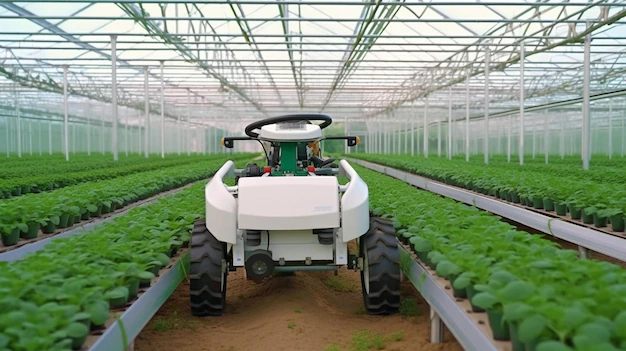Composters and bioconverters play crucial roles in sustainable agriculture by facilitating the recycling and transformation of organic waste materials into nutrient-rich compost and biofertilizers. Here are some of the key advantages of using composters and bioconverters in sustainable agriculture:
- Nutrient-rich soil amendment: Composters and bioconverters break down organic waste materials, such as crop residues, animal manure, food scraps, and yard waste, into compost. Compost is a natural soil amendment that enriches the soil with essential nutrients, including nitrogen, phosphorus, and potassium, as well as micronutrients. This improves soil fertility, enhances plant growth, and promotes healthy crop development.
- Waste management and recycling: Composters and bioconverters offer an environmentally friendly solution for managing organic waste. By diverting organic waste from landfills, these systems help reduce methane emissions, a potent greenhouse gas. Additionally, they promote waste recycling by transforming waste materials into a valuable resource, minimizing the need for synthetic fertilizers and reducing the consumption of non-renewable resources.
- Soil health improvement: Composters and bioconverters contribute to enhancing soil health and structure. Compost improves soil water-holding capacity, reduces soil erosion, and promotes soil aeration, leading to better moisture retention, increased nutrient availability, and improved overall soil quality. Healthy soil supports beneficial microbial activity, fostering a balanced soil ecosystem and promoting plant resilience against diseases and pests.
- Reduced dependence on synthetic fertilizers: Compost and biofertilizers produced by composters and bioconverters offer a natural alternative to synthetic fertilizers. By incorporating these organic amendments into agricultural practices, farmers can reduce their reliance on chemical fertilizers. This reduces the environmental impact associated with the production, transportation, and application of synthetic fertilizers, minimizing pollution of water bodies and safeguarding ecosystem health.
- Increased agricultural productivity and yield: The application of compost and biofertilizers derived from composters and bioconverters can improve crop productivity and yield. The organic matter and nutrients present in these amendments enhance soil fertility, leading to healthier plants with increased resistance to stress, improved root development, and enhanced nutrient uptake. Ultimately, this can result in higher crop yields and better-quality produce.
- Cost savings for farmers: Adopting composters and bioconverters can lead to cost savings for farmers. By producing their own compost and biofertilizers, farmers can reduce or eliminate the need to purchase expensive synthetic fertilizers. Additionally, composters and bioconverters can help farmers save on waste disposal costs by utilizing organic waste materials effectively and efficiently.
- Environmental sustainability: Composters and bioconverters contribute to the overall sustainability of agricultural systems. By reducing the use of synthetic fertilizers and improving soil health, these systems help mitigate the negative environmental impacts associated with conventional farming practices. They promote biodiversity, conserve natural resources, minimize soil degradation, and contribute to the long-term sustainability of agriculture.
Composters and bioconverters offer numerous advantages in sustainable agriculture, including improved soil fertility, waste management, reduced dependence on synthetic fertilizers, increased agricultural productivity, cost savings, and environmental sustainability. These technologies play a vital role in promoting a circular economy and supporting more ecologically sound and resource-efficient agricultural practices.
Join 'Farmers Mag' WhatsApp Channel
Get the latest Farming news and tips delivered straight to your WhatsApp
CLICK HERE TO JOIN






